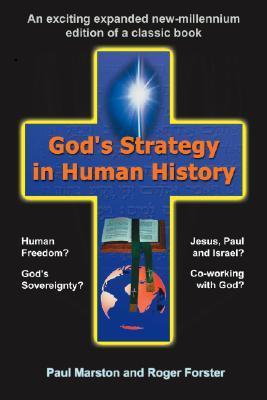Jag är alltid lite kluven till Calvinistisk teologi. Å ena sidan, är den elegant, lösningsorienterad, och formalistisk, vilket blir en behaglig läsning. Dess bortval av komplex terminologi gör den också lättillgänglig, samtidigt som den stannar upp och definierar begreppen som används, och förklarar när begreppsanvändningen avviker från standard. Så långt är det alltså vackert skriven filosofi (om Gud).
Å andra sidan upplever jag den som baserad på osund kunskap, och därför teologiskt osund. Detta är olyckligt, för det är tydligt att författaren själv har gjort allt han kan för att undvika sofismer, men han hamnar där ändå, eftersom hans tolkning av världen är sådan. Att å ena sidan hävda bibeln som enda gudomligt inspirerade dokument, och å andra sidan luta sig mot både patristik och etymologisk tolkning, samtidigt som man (å 3e sidan) hävdar att tradition inte är en fungerande källa till kunskap om Gud, är hycklande. Säg hellre att man väljer att bara godkänna traditionen som ledde till Paulus brev, och försöker rekonstruera denna. Det var ju faktiskt "partilinjen" från Lutheranernas sida, men väl också en del av vår dispyt.
Författaren gör dessutom ett utmärkt jobb med att förklara sina ställningstaganden, men gör inte ett lika bra jobb med att avkoda den religiösa kontexten i vilken Jesus och Paulus (de två huvudkällorna till doktrin i boken) levde. Det gör att jag inte är säker på dess validitet. Om jag, som inte är jude (men kanske gudfruktare), kan se att en del av de uppfattningar som tillskrivs tidiga rabbiner, är tendensiöst tolkade, så gör det mig orolig för resten. Notera dock att alla kristna källor får en mycket adekvat och respektfull tolkning, även när författaren inte håller med dem.
Ur ett rent utilitaristiskt perspektiv, innehåller boken flera psykologiskt sunda tankeregler, formulerade på ett sätt som gör det lätt att ta till sig dem. Jag tror att många skulle må bra av att läsa den av den anledningen. Samtidigt är dessa sidovinster inte bokens huvudsakliga syfte, även om de med säkerhet ingår i dess målkomplex.
För de som tycker att det är spännande med andlig spekulation, och för de som njuter av välskriven vetenskaplig text, och för de som helt enkelt vill få en grundkurs i Calvinism som är väldigt välskriven, är detta en bok för er. För de som tyckte att Tom Hollands Rubicon, för allt vad den är underbart trevligt skriven, och lockar folk till fältet, hade för många sakfel för att läsas, för er rekommenderar jag att undvika boken.
För alla andra, så är den välskriven, och spännande, men kanske inte att ta på allt för stort allvar. Jag vill ge den 4,5 stjärnor, men kan inte.

